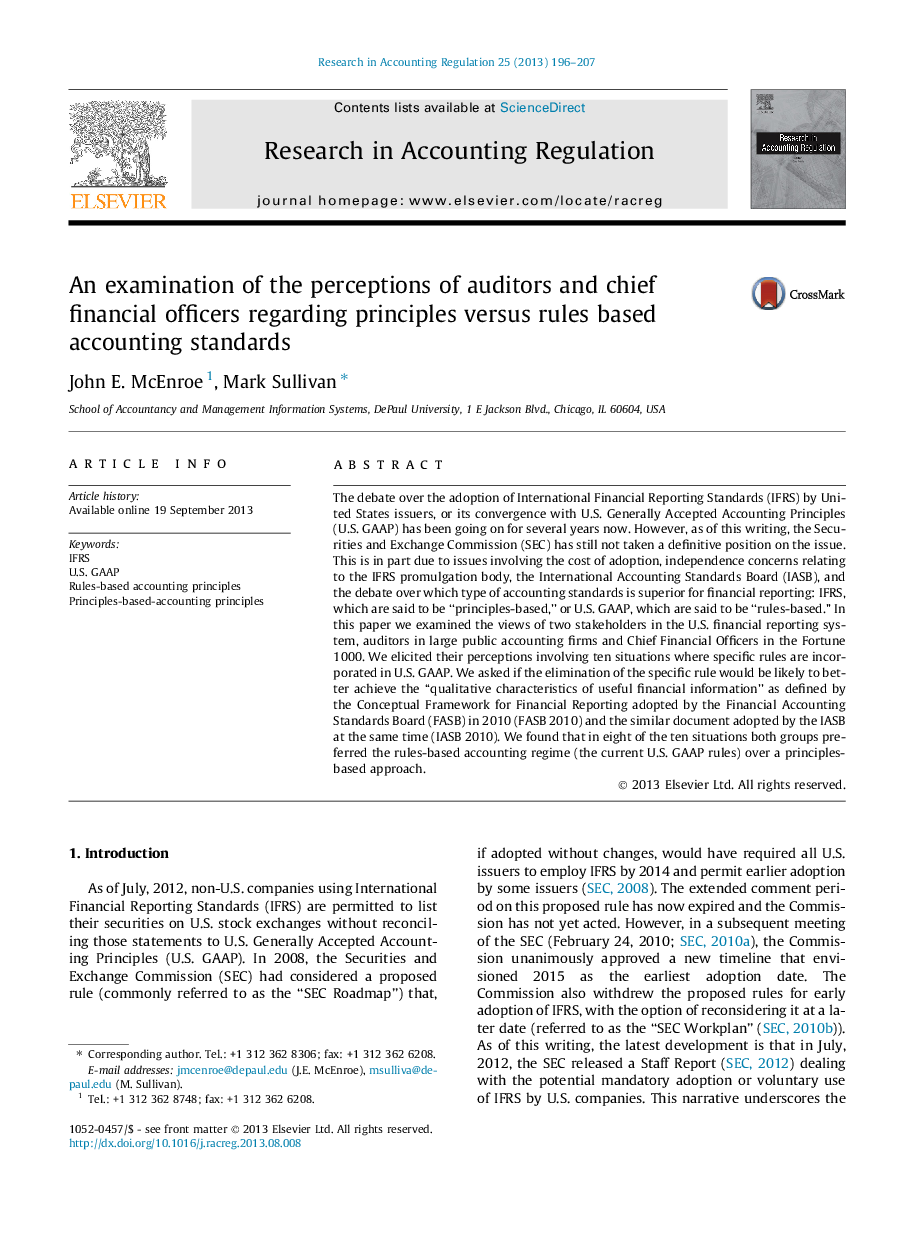| Article ID | Journal | Published Year | Pages | File Type |
|---|---|---|---|---|
| 10489846 | Research in Accounting Regulation | 2013 | 12 Pages |
Abstract
The debate over the adoption of International Financial Reporting Standards (IFRS) by United States issuers, or its convergence with U.S. Generally Accepted Accounting Principles (U.S. GAAP) has been going on for several years now. However, as of this writing, the Securities and Exchange Commission (SEC) has still not taken a definitive position on the issue. This is in part due to issues involving the cost of adoption, independence concerns relating to the IFRS promulgation body, the International Accounting Standards Board (IASB), and the debate over which type of accounting standards is superior for financial reporting: IFRS, which are said to be “principles-based,” or U.S. GAAP, which are said to be “rules-based.” In this paper we examined the views of two stakeholders in the U.S. financial reporting system, auditors in large public accounting firms and Chief Financial Officers in the Fortune 1000. We elicited their perceptions involving ten situations where specific rules are incorporated in U.S. GAAP. We asked if the elimination of the specific rule would be likely to better achieve the “qualitative characteristics of useful financial information” as defined by the Conceptual Framework for Financial Reporting adopted by the Financial Accounting Standards Board (FASB) in 2010 (FASB 2010) and the similar document adopted by the IASB at the same time (IASB 2010). We found that in eight of the ten situations both groups preferred the rules-based accounting regime (the current U.S. GAAP rules) over a principles-based approach.
Related Topics
Social Sciences and Humanities
Business, Management and Accounting
Accounting
Authors
John E. McEnroe, Mark Sullivan,
